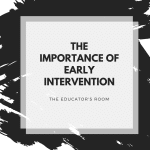This article is part of a continuing series on Child Development. To see Paula’s other articles, click here.
You gotta love the life of seven- and eight-year-olds. Let’s take a look into the child developmental areas of these kiddos.
Cognitive development:
For the most part, in this child development stage, these kids are fairly well-established in their reading and math skills. Application is huge, and they must ‘use or lose’ the skills they have learned. Kids at these ages are very competitive and eager to learn. They are serious thinkers and are able to solve more complex problems. Three-step directions are able to be followed.
Hobbies and sports are very important to seven and eight-year-olds. They may become obsessed with whatever sport they are involved in or whatever hobby they are doing. These kids like to be challenged. They enjoy working hard, and they enjoy the sense of accomplishment they get when finishing a project.
At this age, kids may be easily distracted or forgetful, leaving school materials at home or personal belongings at school. They are trying to develop a sense of self and are really wanting that independence, but aren’t quite capable yet of storing a lot of commands or tasks.
Kids at this age love to collect treasures and group objects together by common traits (animals, color, theme). They love to talk about these objects and will possibly share beloved treasures with a person they trust. They will also demonstrate hurt feelings if a special ‘treasure’ they have given to a person is not taken care of (i.e., a flower given to a teacher at recess, but the teacher doesn’t display it in the classroom).
Social development:
Seven- and eight-year-olds favor being among peers over adults in this stage of child development. These kids are very sensitive to what adults may say, even when meant in a positive manner. Group play is important. Although rules may be continually changed throughout an organized activity, seven- and eight-year-olds are very concerned with the reactions of others and will try to accommodate those reactions without sacrificing their own gain.
At these ages, tattling is huge! Although rules for games and group play may be changed throughout the activity, these kids are still fairly egocentric. Aggression may be the go-to method for solving problems. These kids may complain excessively about other children not ‘following the rules even if they are the ones who are guilty of this.
The division of sexes is also very strong. Girls play with girls, and boys play with boys.
Most children at these ages have developed a simplistic sense of moral rights and wrongs, including the feeling of remorse. These kids are very, very busy! They will usually be active until they drop from exhaustion. They may also frequently pout about anything and everything, from hurt feelings to not getting their way.
Some children at this age are very excited about new responsibilities and are usually able to equate simple chores with a reward (allowance, ice cream trips, etc.). Nervous habits (biting nails, jiggling feet, etc.) may develop at this time. It is important to curb these habits quickly. Behavior modification works very well at these ages.
Speech and language development:
These kids are talkers in this stage of child development ! They want to tell everyone about everything. They love to tell stories and can recap details of events that were valuable to them. They need this outlet. They may also try out new vocabulary they have heard, including ‘bad’ words. They are listening at all times, but only the information that they consider meaningful will stay with them.
This is the time that speech impediments may be prevalent. Children at these ages may struggle with keeping their speech level with their thought processes. They will speak at a fast clip, trying to keep up with the ideas and stories going through their minds.
Gross motor skills:
Most gross motor skills are very well developed by these ages. Most typical kids are able to run quickly, hop, skip, gallop, and jump rope, and have great hand-eye coordination.
Sports activities are huge at this age. They enjoy recess, PE, and any type of high-energy activity. These kids are bundles of excessive energy!
Fine motor skills:
Fine motor skills may look as if they are regressing in this stage of child development. This happens because these kids are trying to keep up with everything that is going on in their heads. They may ‘rush’ through work or activities and will need to be told to slow down. They may also be asked frequently to redo school papers.
Most kids at this age are able to write legibly on lined paper that is 3/4” wide. However, if given unlined paper or paper without boundaries, they will ‘scribble scrabble’, and their work will be illegible. Kids may also complain about their ‘hands hurting’ or that teachers are giving ‘too much work’ or writing. This complaint is normal.
Expectations must be very clear and concrete.
Throughout all five developmental stages, expectations must be clear and concise. These kids are still very concrete. Once expectations are laid out, it is important to follow through with rewards and consequences that have been established. Rewards work much better than consequences.







